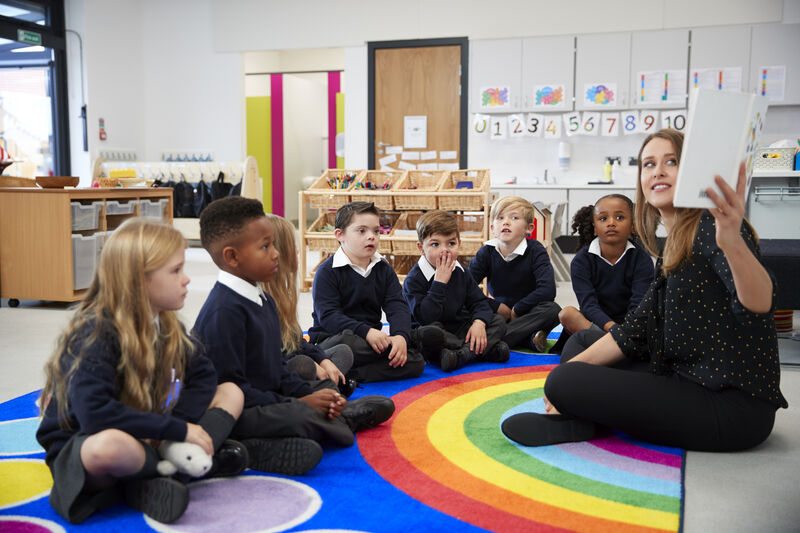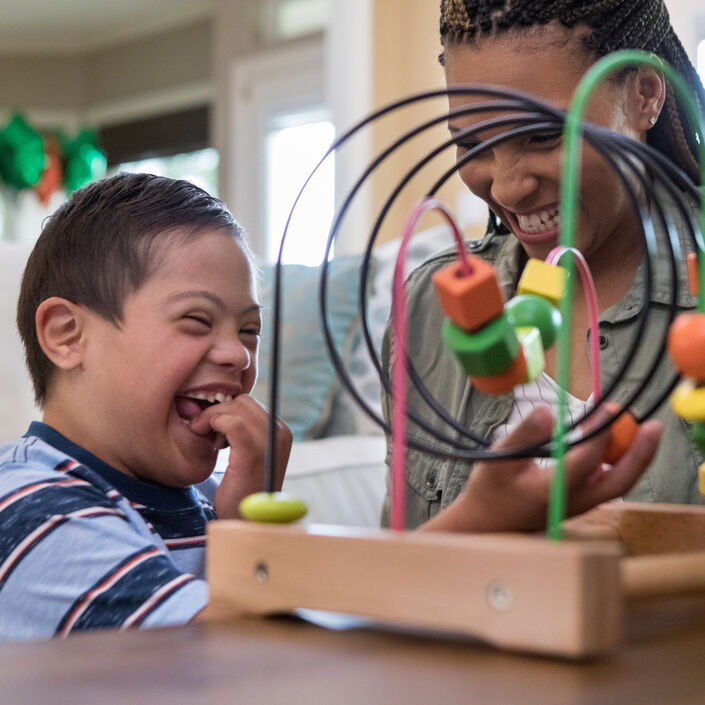Attend “meet the teacher” or “settling in” sessions at the school
Many schools offer “stay and play” style sessions ahead of the start of the school year to allow new children to meet their teachers and spend time in a classroom environment. These will help your child become familiar with the new school setting, socialise with other children, and help prepare them for full-time education.
If your school does not offer these sessions and you believe it would benefit your child, ask them for photographs of the classrooms and an idea of the activities in a typical day, so that you can share that information with your child.
At home, you can help your child with self-care skills, such as putting on their shoes and coat by themselves and opening snack packets without assistance.
Attend all follow-up appointments with your child’s specialists
Even if you think your child does not have any additional needs, be sure to attend all follow-up appointments with their health visitors and specialists. They may be able to identify additional needs and talk through the school start with you.
A face-to-face developmental assessment should be provided at 2 years of age for all children born premature. Children born before 28 weeks of gestation may be offered a developmental assessment at the age of 4, which can highlight issues that had not been obvious at their 2-year assessment.
Raise awareness of prematurity by sharing information with the school
Teachers are trained to deal with special needs and disabilities. However, studies have shown that only a small number of teachers feel they have received enough training to support children who were born premature.
On average, each primary school class across the UK may have two children who were born premature. It is really important that teachers understand the child’s potential challenges and know the best ways to support them.
Through the school’s admissions process, you should outline any issues or concerns around your child’s health or development. Explain that their birth was premature and include further details about neonatal stays, care that they’ve received, and challenges that you’re aware of.
The ‘PremAware School’ Scheme
Our friends at The Smallest Things, a charity set up to support premature babies, have created the Prem Aware Scheme. This campaign helps to support and train teachers in how prematurity can affect development, recognise any additional learning needs, and help children to achieve their potential.
Ask the schools you would like your child to join if they are aware of the PremAware scheme and encourage them to sign-up if they are not.
PRISM Training - Preterm Birth Information for Education Professionals
Bliss and The Smallest Things also invite schools to complete the Preterm Birth Information for Educational Professionals, a free and accessible online training platform.
It was developed by the PRISM Study, a group of doctors, professors and psychologists from various UK universities. It was created in partnership with parents, to improve the knowledge and confidence of teachers and other educational professionals for supporting premature children in the classroom.
The training outlines possible considerations for children born premature. This may include lower academic attainment, special educational or behavioural needs, as well as social and emotional problems.
It also provides supporting strategies that teachers can use to work with the child, help and encourage them, and plan and evaluate their learning.
While this training programme is aimed at teachers, it is also a useful resource for parents if you want to know more about how premature birth can affect educational development.


